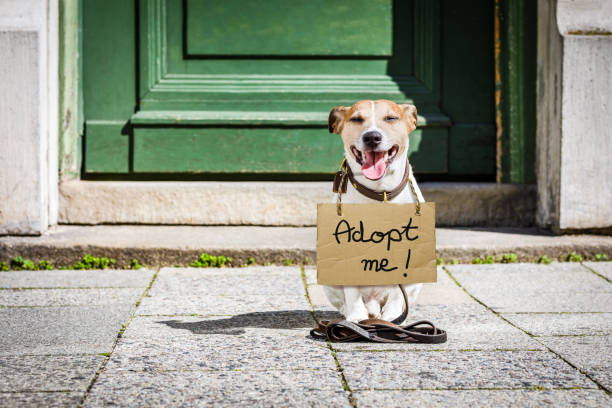In today's interconnected world, we have the unique opportunity to learn from pet-care practices across different cultures and countries. Pet-care professionals and pet parents alike can benefit from understanding and adopting international practices that promote the well-being of our furry friends. This blog post explores various pet-care practices from around the globe, highlighting innovative approaches and valuable lessons we can incorporate into our own routines.
Japan: Emphasizing Cleanliness and Pet-Friendly Spaces

1. Cleanliness and Hygiene: Japan is renowned for its meticulous attention to cleanliness, and this extends to pet care. Pet owners in Japan often take extra measures to ensure their pets are clean and well-groomed. Regular grooming sessions, including baths, nail trimming, and ear cleaning, are standard practices.
2. Pet Cafes and Socialization: Japan popularized the concept of pet cafes, where pet owners and animal lovers can spend time with animals in a relaxed setting. These cafes not only provide a social environment for pets but also promote responsible pet ownership and the importance of regular interaction and socialization.
Lesson: Prioritize cleanliness and hygiene in pet care, and create opportunities for pets to socialize in safe, controlled environments.
Germany: Focus on Training and Discipline

1. Obedience Training: In Germany, obedience training is a fundamental aspect of pet care. German pet owners often enroll their dogs in comprehensive training programs from a young age, emphasizing discipline, good behavior, and responsiveness to commands.
2. Dog-Friendly Workplaces: Germany is known for its dog-friendly workplaces, allowing employees to bring their well-behaved dogs to work. This practice not only enhances the bond between pets and owners but also creates a more relaxed and productive work environment.
Lesson: Invest in obedience training to ensure well-behaved pets, and explore opportunities to create pet-friendly environments in the workplace.
Italy: Incorporating Pets into Daily Life

1. Pet-Friendly Public Spaces: Italy is one of the most pet-friendly countries in Europe, with many public spaces, including parks, restaurants, and shops, welcoming pets. Italian pet owners often bring their pets along for daily activities, ensuring they are well-integrated into their lives.
2. Regular Vet Visits: Italian pet owners prioritize regular veterinary check-ups to monitor their pets' health and well-being. Preventive care and timely medical attention are key components of pet care in Italy.
Lesson: Integrate pets into daily life and prioritize preventive health care through regular vet visits.
Australia: Active and Outdoor Lifestyles

1. Outdoor Activities: Australia's outdoor-centric culture encourages pet owners to engage in regular physical activities with their pets. From beach outings to hiking and park visits, Australian pets often lead active and adventurous lives.
2. Wildlife Awareness: Given Australia's unique wildlife, pet owners are educated about the importance of keeping pets safe from potential dangers, such as venomous snakes and insects. This awareness ensures pets can enjoy outdoor activities safely.
Lesson: Promote an active lifestyle for pets with regular outdoor activities, while being mindful of potential environmental hazards.
Scandinavia: Prioritizing Pet Welfare and Environmental Considerations

1. High Welfare Standards: Scandinavian countries, particularly Sweden and Norway, are known for their high standards of animal welfare. Strict regulations ensure pets are treated with respect and receive the care they need.
2. Sustainable Pet Care: In Scandinavia, there is a strong emphasis on sustainability in pet care. This includes using eco-friendly products, sustainable pet food, and minimizing the environmental impact of pet ownership.
Lesson: Advocate for high animal welfare standards and incorporate sustainable practices into pet care routines.
Brazil: Community and Rescue Efforts

1. Community Involvement: In Brazil, community involvement plays a significant role in pet care. Many neighborhoods have local groups dedicated to rescuing and caring for stray animals, ensuring they receive medical attention and are rehomed.
2. Adoption Over Purchase: There is a strong emphasis on adopting pets from shelters and rescues rather than purchasing from breeders. This approach helps reduce the number of stray animals and promotes responsible pet ownership.
Lesson: Foster a sense of community involvement in pet care and encourage adoption from shelters and rescues.
Incorporating International Practices into Your Pet-Care Routine

1. Educate and Train: Invest in regular training and education for both pets and pet parents. Well-trained pets are easier to manage and can enjoy a higher quality of life.
2. Prioritize Health and Hygiene: Maintain high standards of cleanliness and hygiene to keep pets healthy and comfortable. Regular grooming and veterinary check-ups are essential.
3. Create Pet-Friendly Environments: Design spaces that accommodate pets' needs, whether at home, in public places, or in the workplace. Ensure pets can socialize and engage in physical activities safely.
4. Embrace Sustainability: Incorporate eco-friendly practices into pet care, such as using sustainable products and reducing waste. Consider the environmental impact of pet ownership.
5. Community Engagement: Get involved in community efforts to support animal welfare, such as participating in rescue and adoption programs. Encourage responsible pet ownership within your community.
Exploring international pet-care practices offers valuable insights and innovative approaches that can enhance the well-being of our pets. By learning from the best practices around the world, we can create a more enriching and fulfilling experience for our furry companions. Whether it's prioritizing hygiene, investing in training, promoting an active lifestyle, or fostering community involvement, there are countless ways to improve pet care and ensure our pets lead happy, healthy lives.
Subscribe to the Gingr Blog






